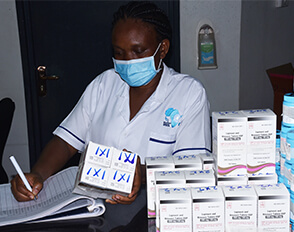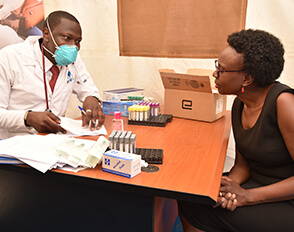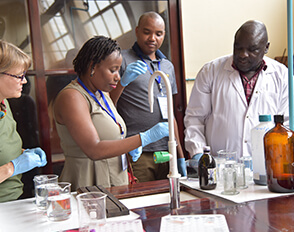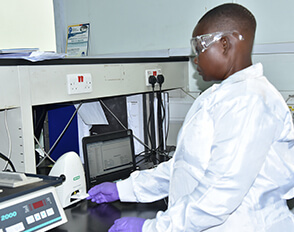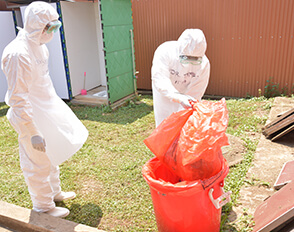
What We Do
With the world greatly interconnected through air, sea, or ground crossings, there is an increased risk of the rapid spread of infectious diseases across countries as evidenced by the COVID-19 pandemic and other diseases. The International Health Regulations 2005 require countries to designate airports, ports, and ground crossings and develop their capacities to institute measures to manage public health risks and minimize disruption of trade and travel.
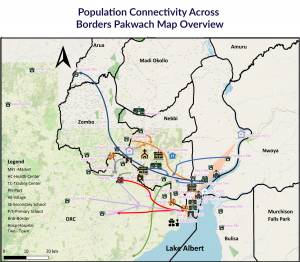 The Infectious Diseases Institute, with support from the US CDC, continues to work with the Ministry of Health and other stakeholders to establish a National Border Health Program able to timely detect and effectively respond to potential hazards that might occur at the over 75 PoEs in the country.
The Infectious Diseases Institute, with support from the US CDC, continues to work with the Ministry of Health and other stakeholders to establish a National Border Health Program able to timely detect and effectively respond to potential hazards that might occur at the over 75 PoEs in the country.
This project supports these efforts through:
- Development of the country’s Border Health Strategies
- Strengthening systems for surveillance of public health threats at the points of entry
- Training of health and non-health port staff
- Strengthening infection prevention and control at PoEs and proximal priority health facilities.
Key Achievements
- National Public Health Emergency Response Plan for Points of Entries developed.
- Over 89 port health staff from 21 PoEs trained in early recognition, isolation, and notification strategies.
- 7 districts hosting land and water crossings trained on eIDSR, improving reporting at the PoEs
- PoE capacity assessments and mentorships to identify and address gaps conducted
- “Recognize Isolate Notify and Give support” approach incorporated in Ebola/Marburg Viral Disease Standard Operating Procedures.
Publications
Preventing the cross-border spread of zoonotic diseases: Multisectoral Community Engagement to Characterize Animal Mobility—Uganda, 2020
Alexandra Marie Medley, Jonan Gasanani, Ceaser Adibaku Nyolimati, Elvira McIntyre, Sarah Ward

